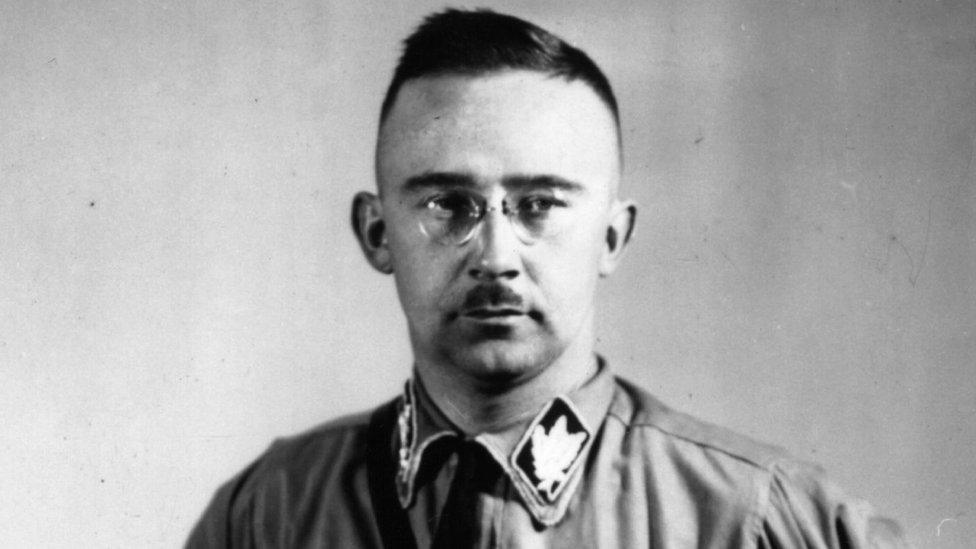Mein Kampf: Is Mein Kampf really a hit with Germans?
- Published
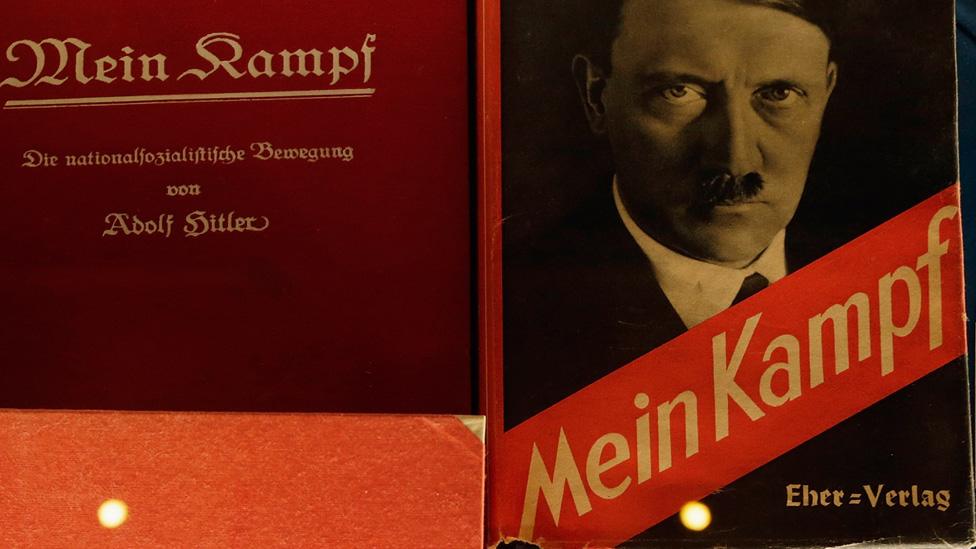
Original editions of Mein Kampf: It urged Germans to avenge their defeat in World War One
"Mein Kampf becomes German best-seller" reads one international headline. "Hitler's Mein Kampf a hit in Germany" reads another.
The fact that the Nazi manifesto reached number one in Der Spiegel's non-fiction charts, external in April is cited as evidence that Adolf Hitler's propaganda is making a comeback in Germany.
But the term "best-seller" does not necessarily mean very much. A quarter of all books sold in Germany are bought in the run-up to Christmas. At other times of the year it is possible to top listings with relatively few sales.
Mein Kampf (My Struggle) is an expensive academic text, costing €58 (£49; $60), and is being bought by libraries, schools and history academics.
"This was a very special case. You can't really compare it with other books," Thomas Koch from the German Publishers' and Booksellers' Association told me.
"It's the first time that an annotated version has been published. So I can imagine that was why figures were relatively high."
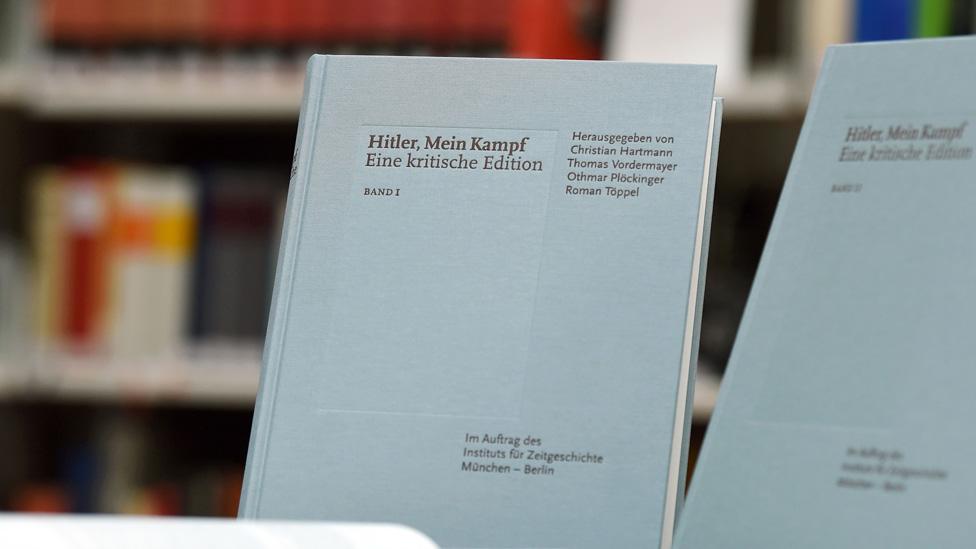
The plain IfZ edition of Mein Kampf: Publication has not been contested in court
Most of the book's sales were made in the first quarter of 2016, before tailing off after April. This suggests that the initial run, when the book was republished in German for the first time, was followed by market saturation.
Not a big hit
For a German non-fiction book, sales of 85,000 are not bad. But the figures don't indicate a runaway hit.
The current biggest non-fiction seller is The Hidden Life of Trees, a book about the ecosystem of woodland, which has sold half a million copies so far.
The major hit of the last few years is a witty explanation of how the human bowel functions, by a medical student in her 20s, that sold over a million.
The top-selling non-fiction book of the past decade, by comedian Hape Kerkeling, sold five million copies. Mein Kampf on the other hand is ranked 79th for non-fiction sales on the German Amazon site, narrowly beaten by a handbook on web coding, and a long way behind a handbook explaining how to get more Twitter followers.
Propaganda fear
Nevertheless it is understandable that the publishers might be overwhelmed. IfZ, which printed the book, is a non-profit research institute, external, not a publishing house, and had expected lower sales of what is a dense academic text.
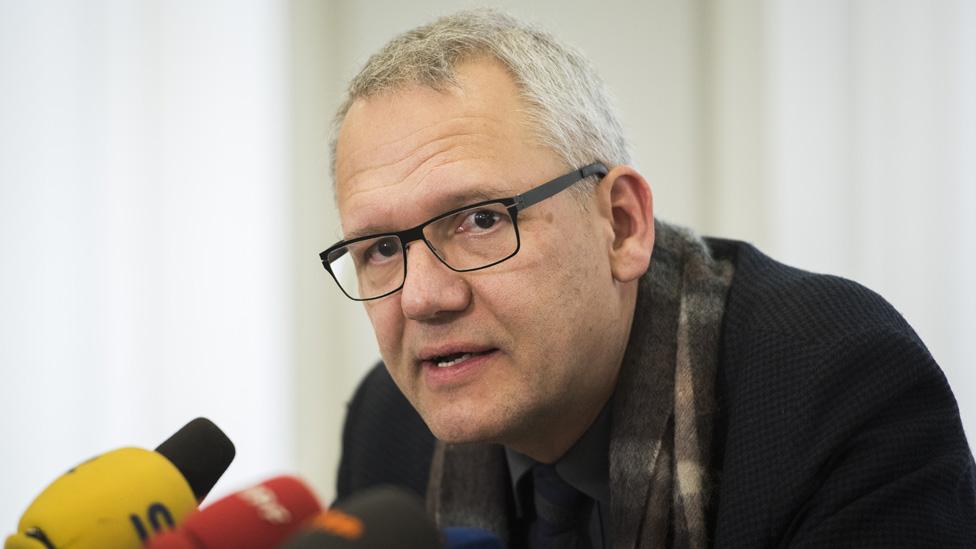
Prof Wirsching says publication of Mein Kampf with scholarly notes did not help neo-Nazis
And the institute believes this edition of Mein Kampf is helping to demystify, rather than empower, Hitler's legacy.
"It turned out that the fear the publication would promote Hitler's ideology, or even make it socially acceptable and give neo-Nazis a new propaganda platform, was totally unfounded," said IfZ director Andreas Wirsching.
"On the contrary, the debate about Hitler's world view and his approach to propaganda offered a chance to look at the causes and consequences of totalitarian ideologies."
- Published3 January 2017
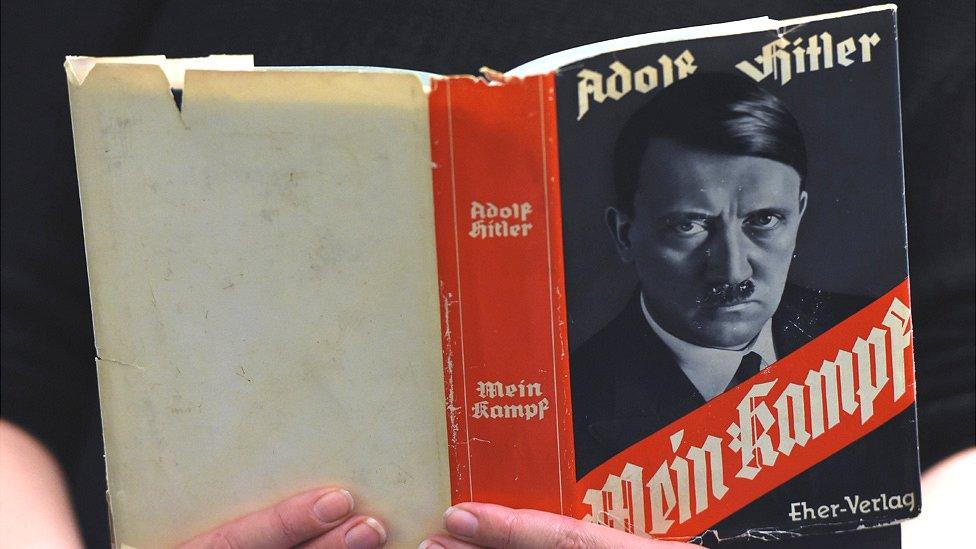
- Published8 January 2016
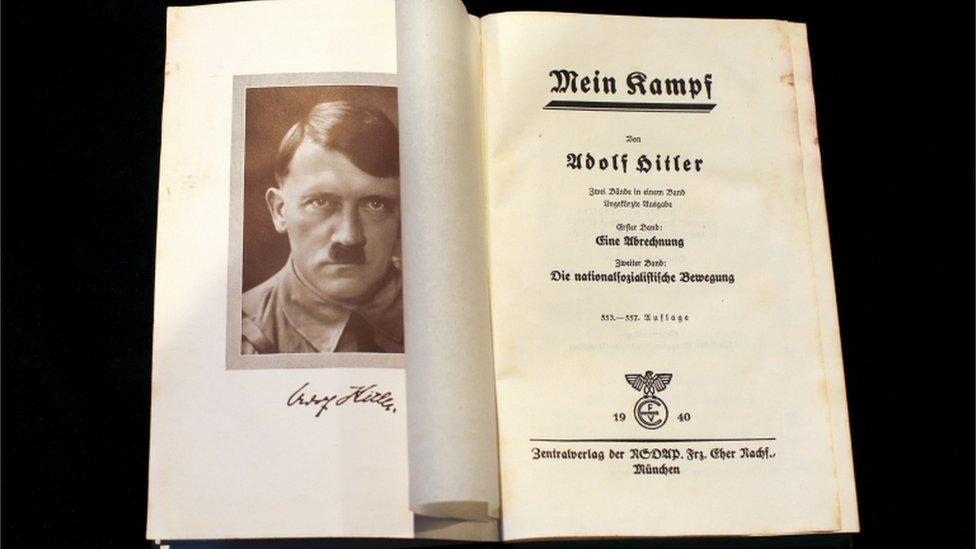
- Published1 January 2016
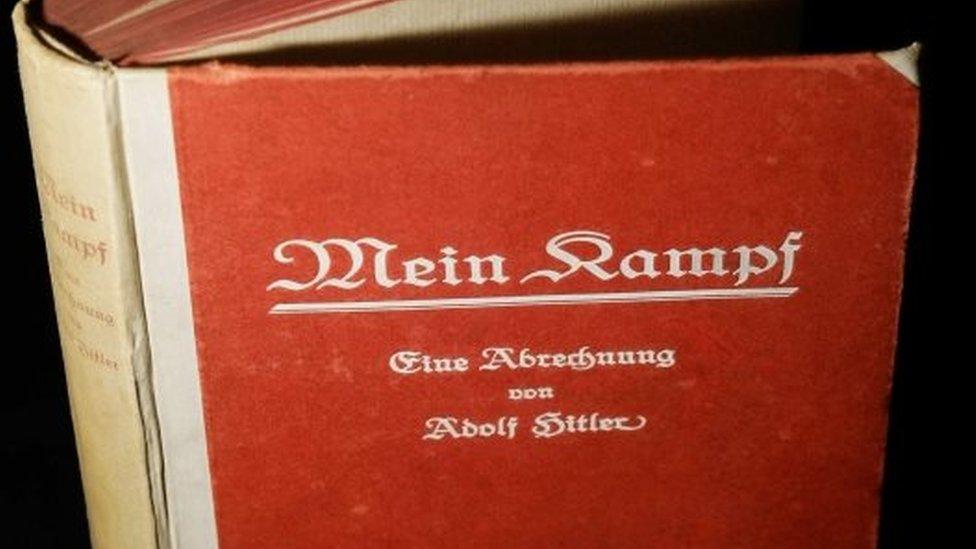
- Published2 August 2016
